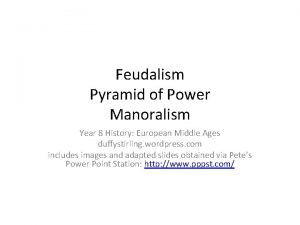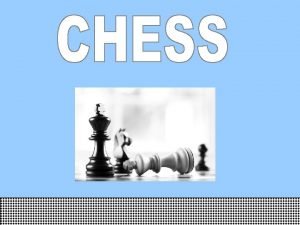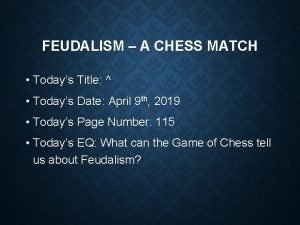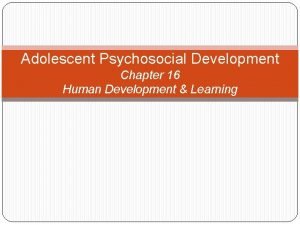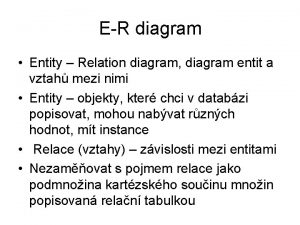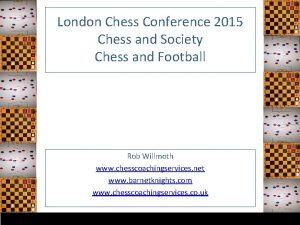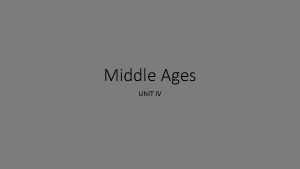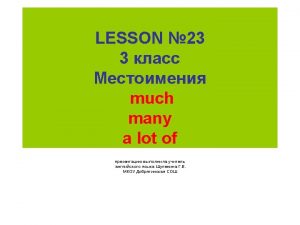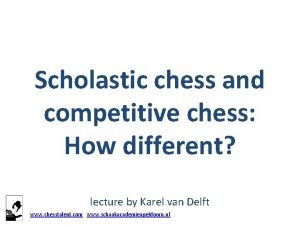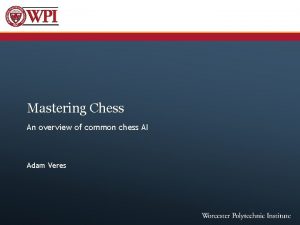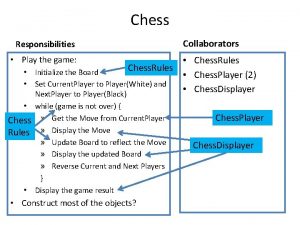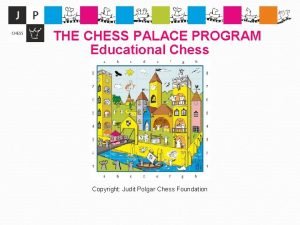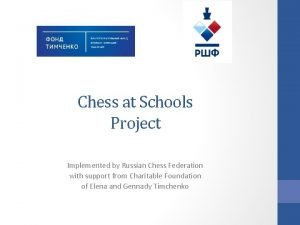CHESS PIECES A guide to fuedalism CHESS Many










- Slides: 10

CHESS PIECES A guide to fuedalism

CHESS Many of you are probably familiar with the game of chess. But did you know chess has been played for over 5, 000 years? If you play chess, then you would know the pieces: King, Queen, Bishop, Knight, Rook, and Pawn. But you may not know exactly what they portray The whole game board, which closely resembles a checkerboard, represents the battlefield upon which the pieces fight on.

KING The king is the most important piece in the game. In Medieval times, the king was always the most important thing in the kingdom (and still is now). Although he can only move one space at a time, if your king is captured, you lose the game

QUEEN The queen is also a very important piece in the game. She can move any way she wants, as many spaces as she wants, which makes her a prominent and favourite piece. The queen represents herself in the game.

BISHOP The third-most important piece is the bishop. The bishop can move diagonally. The bishop represents the church and religion and is located on either side of the king and the queen (who stand in the center of the second row). In Medieval Europe, the bishop was second in line with the king and queen.

KNIGHTS The knight is another self -representing piece. The knights can move in an Lshape. The knight piece is actually that of a horse's head, because that's what knights rode. In Medieval times, knights weren't poor, as you may think. On the contrary, only the highly educated and wealthy men could become a knight.

ROOK At the end of the second row, there stands the rook (often, unprofessionally, known as the "castle" or the "tower"). The rooks represent the castle's walls, which protect the king, queen, bishop, and knights.

PAWN The pawns are the only pieces to stand in the front row and there are more of them than any other pieces on the board. The pawns represent the serfs, or peasants, who had to pay money to live on the king's land. They had to work hard, and were still very poor. Although they aren't really there to "protect, " they stand in the front row

CHESS BOARD LAYOUT

The King can only move one square The Queen can move as many as she wants in any direction The Knights can only move in an L shape of four squares Bishops move diagonally as many as they want Rooks can move horizontally or vertically as many as they want Pawns can only move one square ( two on their first move) The aim is to get the King! SUMMARY CHESS MOVES

